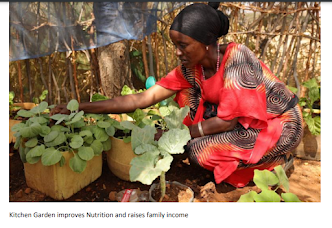Why This is Our Theme of the Year
At The SOL Foundation, we believe that empowering women is not just an initiative—it’s a necessity for building stronger families, communities, and societies. This year, we are dedicating our efforts to women’s empowerment and gender equality, making it the central theme of our work.
Through our #SOLEmpowerment initiative, we aim to uplift, support, and create opportunities for women to thrive in all aspects of life.
What is Women’s Empowerment?
Women’s empowerment is about ensuring that women have the tools, resources, and opportunities to reach their full potential. It means giving women:
✅ Access to Education – So they can build knowledge and skills for a better future.
✅ Economic Independence – So they can support themselves and their families.
✅ A Voice in Leadership – So they can shape policies and decisions that affect their lives.
✅ Protection and Rights – So they can live free from violence and discrimination.
When women are empowered, entire communities benefit—children receive better care, economies grow, and societies become more just and inclusive.
Why We Chose Women’s Empowerment as Our Theme of the Year
Women around the world continue to face barriers that limit their potential. Despite progress, gender inequality remains a major issue in education, the workplace, leadership, and personal safety. Here are some of the key challenges women face today:
🔹 Limited Access to Education – Millions of girls still lack access to quality education due to poverty, cultural norms, or conflict.
🔹 Economic Inequality – Women earn less than men for the same work, have fewer business opportunities, and face greater financial instability.
🔹 Gender-Based Violence – Many women experience violence, harassment, and abuse, often with limited legal protection.
🔹 Lack of Representation in Leadership – Women remain underrepresented in government, business, and decision-making roles.
By choosing Women’s Empowerment as our theme this year, we are committing to raising awareness, creating solutions, and taking action to address these challenges.
Introducing #SOLEmpowerment: A Movement for Change
At The SOL Foundation, we are launching #SOLEmpowerment, a key initiative designed to support women’s growth, independence, and success. This initiative includes:
🌟 Educational Programs
🌟 Entrepreneurship Support
🌟 Community Engagement
🌟 Advocacy & Awareness
Through #SOLEmpowerment, we aim to create real, lasting impact—not just for women today, but for future generations.
Join Us in Empowering Women
Women’s empowerment is not just a women’s issue—it is a global issue that requires everyone’s involvement. Whether you are a woman striving for change, an ally supporting equality, or a leader with the power to make a difference, your role is crucial.
💡 How You Can Get Involved:
✔ Share stories of empowered women to inspire others.
✔ Support initiatives that provide education and resources for women.
✔ Mentor and uplift women in your community.
✔ Advocate for policies that promote gender equality.
Together, we can turn empowerment into action and ensure that every woman has the opportunity to succeed.
This is more than just our theme for the year—it’s a movement. And we invite you to be a part of it.
🔹 Follow us and join the conversation using #SOLEmpowernment!
🔹 Let’s make 2025 the year of women’s empowerment.
.......................................................................................................................................
Website: https://www.the-sol-foundation.org/
Instagram: https://www.instagram.com/thesol_foundation/
Facebook: https://www.facebook.com/thesolfoundationorg/
TikTok: https://www.tiktok.com/@thesolfoundation
Blog: https://the-sol-foundation.blogspot.com/
Email: coordinator@the-sol-foundation.org
Take a look at some of the comments from our Instagram Platforms:
@theadventglobal
"To me it means when a woman is finally casually independent and able to make her own decisions without any pressure and be sustainable."
@flaviu.soul
"Love and respect to women"
@lavingdelegend
"Where a woman can be a voice of other women out there and can also be independent."
@yvmi_02
"Being provided with the platform to express themselves.
@zainab_akadir
"Sense of self worth"
@_real_rizwana
"When a woman is financially independent"

%20(1).png)
%20(1).jpg)





